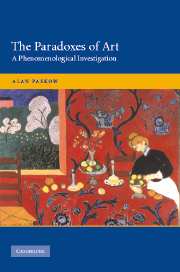3 - Why and How Others Matter
Published online by Cambridge University Press: 27 March 2010
Summary
So far in this book I have in several places implicitly or explicitly challenged two interrelated, fundamentally Cartesian propositions: (a) that knowledge of the world is exclusively gained through our cognition of all sorts of things (such as plants or animals or people) from a neutral, detached, “third-person” standpoint and, therefore, (b) whatever is revealed to us from a first-person standpoint that is not observable for others (such as my feeling of anxiety) is not of interest in helping us to understand what is most fundamental to – the essence or nature of – anything at all, including us humans. Thus, Descartes's privileging the third-person perspective for gaining knowledge has serious implications for what he identifies as “the real world.” His methodological assumption is not just idiosyncratic to him or his disciples and followers, it is also to a great extent ours, having greatly shaped what we Westerners now denominate “common sense.” Continuing in the same anti-Cartesian vein that I have pursued all along and taking my inspiration from Heidegger, I now try to delineate from an ontological perspective (but only insofar as it is necessary to shed light on the nature of artistically rendered fictions) who people (“the others”) are for us, not as they are supposed to be according to traditional philosophical and even everyday thinking – complicated, conscious and self-conscious, mammals by whom we are often “greatly affected” and who are nevertheless “quite separate from us” and thus “out there” beyond us – but as we respond to them from our truest and deepest selves, thus including in our account those troublesome, “merely subjective,” but fundamental feelings and concerns as well as the ontological significance suggested by their existence.
- Type
- Chapter
- Information
- The Paradoxes of ArtA Phenomenological Investigation, pp. 123 - 157Publisher: Cambridge University PressPrint publication year: 2004



